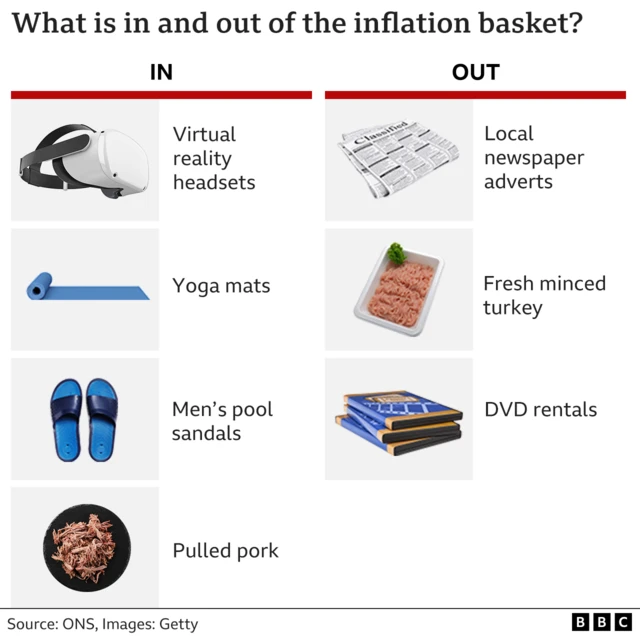How is the UK's inflation rate measured?published at 06:23 BST 16 April
Adam Wood
BBC Breakfast producer
The prices of hundreds of everyday items, including food and fuel, are tracked by the Office for National Statistics (ONS).
This virtual "basket of goods" is regularly updated to reflect shopping trends, with virtual reality headsets and yoga mats added in 2025, and local newspaper adverts removed.

The ONS monitors price changes over the previous 12 months to calculate inflation.
The main inflation measure is called the Consumer Prices Index (CPI), and the latest figure is published every month.